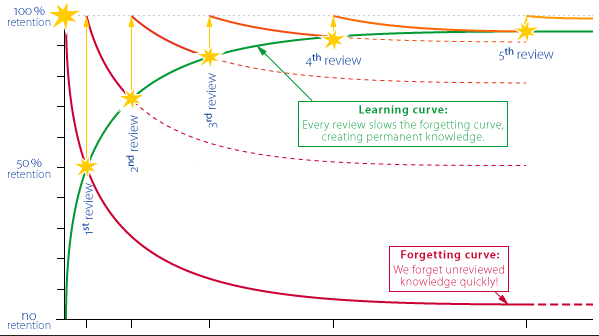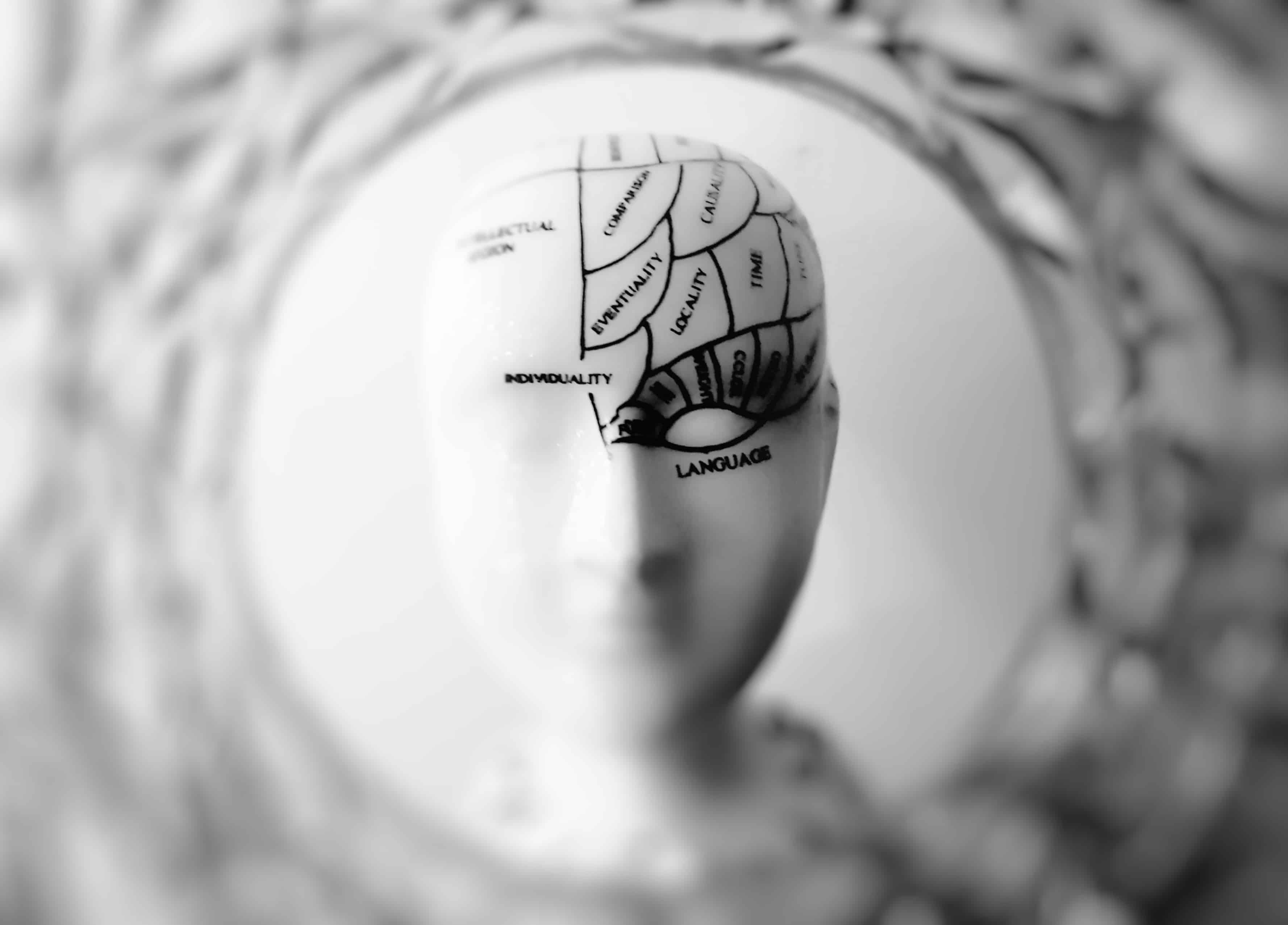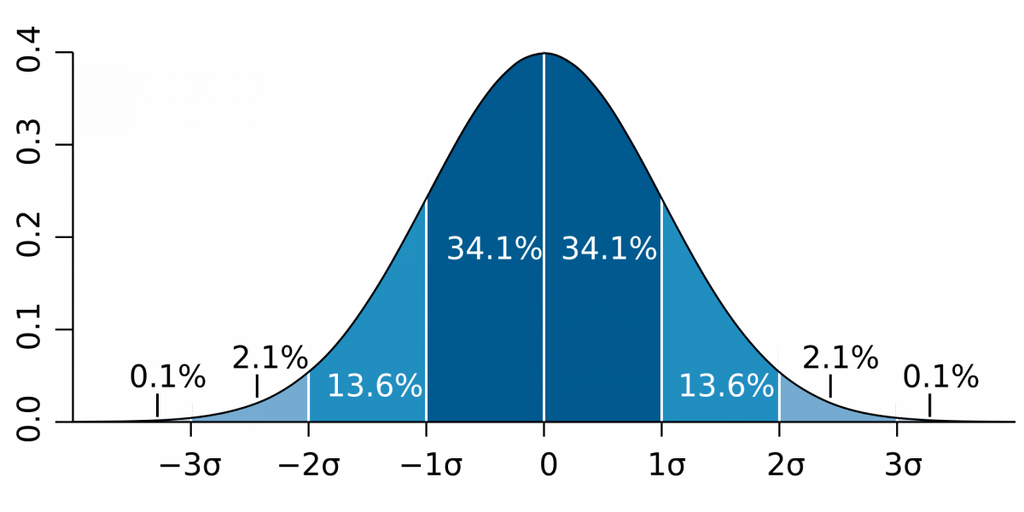Factors Affecting Word Difficulty I.E., What Kills Your Learning Progress

There are many factors affecting word difficulty i.e., your ability to learn and recall them.
No wonder. There are dozens of factor at play here. Unfortunately, typical explanations of what affects these processes are severely lacking. Every time I hear that "you probably don't read enough," I do my best to toss 1 kg of plastic bags into the ocean. Die mermaids, die!
Let's conduct a thorough analysis of the factors that you should take into consideration if you have a hard time learning vocabulary. Some of them will be obvious; others will probably surprise you.
Why words are difficult to remember
As you can imagine, there are lots of elements which you have to take into consideration to fully answer this question. Some of them have marginal meaning and have very little research supporting their validity.
Others are simply beyond your control. A good example is parts of speech. For instance, research generally shows that they are easier to remember than verbs or adjectives (Philips 1981). They are also encoded in different parts of the brain than verbs.
The question is, "Does it matter?" Of course not. You still have to learn both nouns and verbs. The same goes for lexical difficulty.
That's why I am going to focus on the ones which can seriously impair your learning ability.
Factors affecting word difficulty
Factors affecting word difficulty | ||
|---|---|---|
1. Lack of a learning system | 2. Regularity of exposure | 3. Timing of repetition |
4. Retention intention | 5. Pronounceability (i.e., how difficult it is to pronounce) | 6. The usefulness of a word |
7. Emotional saliency | 8. Ease of application (i.e., knowing how to use a word) | 9. Lack of context |
10. Number of contexts | 11. Active encoding | 12. Morphological awareness (i.e., derivational complexity) |
13. The capacity of your short-term memory | 14. Intrinsic cognitive load (ICL) | 15. Germane cognitive load |
16. German cognitive load (GCL) | 17. Mental and physical condition | 18. Mental barriers |
19. Random variable(s) | ||
Let's discuss them one by one, so you know what potentially impairs your learning speed.
1. Lack of learning system

Autor: George Becker
One of the most surprising facts about how people learn is that most of them have no organized system of learning. You might think that's an exaggeration, but I assure you it's not.
To get a better insight on how students actually learn, we have conducted a survey among the students of our university (HSW — University of Applied Sciences) about their strategies and learning behaviors.
Overall, there were 135 students participating in this survey from all 6 semesters and between 18 and 31 years of age. 68.1% of the participants were male, 31.9% female. Only very few of them deliberately make use of learning strategies, such as spaced repetition or the Leitner system. 94.8% of the participants just repeat the learning topics randomly to have them available during a test.
The terrifying thing is that we're not talking about a bunch of clueless people without any education. We're talking about bright individuals who will shape the future of their nation.
And yet, almost all of them rely on something I call a let's-hope-it-sticks strategy. It's nothing more than spitting on a wall and hoping that something will set. But it rarely does.
You can read, reread and cram all you want. Most of the knowledge you gather this way will be forgotten by the end of the next week.
If you don't have a set way of dealing with words you want to learn, you will fail 9/10. It doesn't matter how bad your strategy is. As long as you have it, there can be some progress.
2. Regularity of exposure to vocabulary
I am sure you have noticed that immigrants who barely know a language still know basic greetings and vocabulary. The reason for this is simple — they are frequently exposed to such words.
"Memorization becomes more difficult the less often given items occur in your learning environment."
Here is a fantastic study showcasing this phenomenon.
"The study examines word knowledge acquisition at different levels. The results showed that greater gains in knowledge were found for at least one aspect of knowledge each time repetitions increased. If learners encounter unknown words ten times in context, sizeable learning gains may occur." Source: The Effects of Repetition on Vocabulary Knowledge
3. Timing of repetition
We have known for over 100 years now that the timing of your repetitions plays a crucial role in the process of learning. Fail to review a word at the right moment, and your retention rate falls drastically.
This phenomenon is presented by the Ebbinghaus forgetting curve. It shows the decline of memory retention in time, or if you look at it from a different perspective, it demonstrates the critical moments when the repetition of the given information should occur.




Lucky for you, you don't need to optimize our repetitions manually (e.g., with the Leitner System). You can simply use Spaced Repetition Software.
Most of such programs base (more or less) their algorithms on Ebbinghaus forgetting curve (side note: it has been replicated many times in the last 50 years).
The only program of this kind which I relentlessly promote is ANKI. It's free; it's versatile. What's not to love?
4. Retention intention
A retention intention sets the stage for good remembering. It is a conscious commitment to acquire a memory and a plan for holding on to it. As soon as you commit to a memory goal, attention locks on to what you want to remember.
This is how attention works—it serves the goal of the moment. And the stronger the motivation for the goal, the more laser-like attention becomes and the greater its memory benefits.
In other words, you can watch as many TV series and read as many books as you like. It will still have almost zero effect if you don't try to memorize the things you don't know.
A vital feature of a retention intention is the plan for holding on to the material. It might be as simple as rehearsing the memory, or it might involve one of the memory strategies described later. Whatever the plan, when you are clear about how you intend to retain the material, it is more likely you will actually carry out the plan, and this can make all the difference between a weak and strong memory.
5. Pronounceability of vocabulary
In order to learn the phonological form of a new word, you must be able to hold a representation of that word in some form of temporary memory so that the word as a whole can be committed to long-term memory.
This phonological form is called a phonological representation.
"This temporary storage is provided by the phonological store component of the working memory model. Once you learn the basic repertoire of speech sounds in your target language, the process of learning the form of a new word becomes one of learning the order in which those sounds appear. The primary role of the phonological store in learning new words is, therefore, to retain the order of those sounds." Source: Dennis Norris, Michael P. A. Page, and Jane Hall, ‘Learning nonwords: the Hebb repetition effect as a model of word learning’
What happens when your phonological representations are incorrect?
You impair your ability to both recognize and retain new words.
That's why a decent pronunciation is not just something "nice to have." It's an important aspect of acquiring vocabulary.
6. The usefulness of a word
This item ties back to the mistake of not having an intention to memorize something. It frequently happens that people simply refuse mentally to learn a word because of its potential uselessness.
If you don't consider vocabulary you learn to be useful, then you don't really stand a significant chance of memorizing it.
7. Emotional saliency




Photo by Ugo Mendes Donelli on Unsplash
It's time to tackle the emotional aspect of learning. Even without any fancy scientific references, you already know that it's much easier to remember things which are emotionally important to us.
"Information without emotion isn't retained." Or, as Ezra Pound said it, "Only emotion endures."
The few experiments comparing the effects of the number of meetings (repetitions) with the quality of the meetings suggest that, of the two, quality has the stronger effect (Laufer, in press; Webb, 2005).
In other words, sometimes it's better to build a couple of emotionally salient sentences with a word of your choice rather than settle for a dozen mediocre ones.
Unfortunately, the main problem with relying on this strategy too much is that you cannot make everything emotionally salient. If everything stands out, nothing does.
8. Ease of application (i.e., knowing how to use a word)
Merely knowing the meaning of a lexical item is not enough. You have to understand how to use the target vocabulary in sentence construction (Larrotto 2011).
That's why it's not enough to simply see a flashcard, or a sentence, made by somebody else to be sure how to use a given word in context.
To be able to use this word correctly, you need to:
One of the prime example of not knowing how to use a word fall into a category of register restrictions.
Register restrictions
Language register can be understood as the level of formality with which you speak. Different circumstances and people require different registers. Sometimes you will use slang, the other time you will be very formal and polite.
Halliday, McIntosh, and Strevens point out that:
"The choice of items from the wrong register, and the mixing of items from different registers are among the most frequent mistakes made by non-native speakers of a language" (1964:88) Source: Why are Some Words More Difficult than Others? Some Intralexical Factors that Affect the Learning of Words
9. Lack of context
By themselves, words and sentences have little meaning; often they can be understood only in relation to other words and sentences.
In other words: things get connected to things. Words which are not connected to others mean nothing and get forgotten. Providing words not in isolation but in various contexts creates new opportunities to memorize them. Whenever the same word crops up in a new phrase, it will be fixed in your mind in yet another way.
What's more, the more contexts you can associate a piece of information with, the easier it is to recall it.
The above can be aptly summarized by The Principle of Associations:
“The human lexicon is believed to be a network of associations, a web-like structure of interconnected links. When students are asked to manipulate words, relate them to other words and to their own experiences, and then to justify their choices, these word associations are reinforced” (Sökmen 1997: 241-2).
10. Number of contexts




You already know that no context is terrible for your learning. But is one context enough? Most of the time no.
Lack of multiple contexts can lead to at least one of the three following problems:
- 1Problems with information transfer
Sometimes if you learn a word in just one or two contexts your brain might not be able to transfer the meaning of the word from one context to another.
If you learn the word "severe" in the phrase "severe consequences" your brain probably won't be able to use this word in the phrase "a severe headache." In order to overcome this obstacle and "unblock" some word, you need to use it in at least a couple of contexts, so you have a semantic web that holds this information.
- 2Problems with retrieving
- 3Problems with memorizing
The last problem is connected with meaningless contexts. Sometimes you try to memorize a word in some phrase, but it simply doesn't work out. The word won't stick even though you have managed to avoid all the other mistakes which I have mentioned previously.
Why is that?
It might happen because your brain might find this one particular context(s) too boring! You have your preferences and tastes, and some phrases won't strike that special chord in your brain.
11. Lack of active encoding
The process of memorizing can be depicted in the four following steps:
- 1Encoding — involves initial processing of information which leads to the construction of its mental representation in memory
- 2Storage — is the retention of encoded information in the short-term or long-term memory
- 3Recall — is the retrieval of stored information from memory
As you can see, encoding is a gateway to the land of remembering.
But what does encoding really mean?
Encoding is any kind of attempt of manipulating a piece of information in order to increase your chances of memorizing it.
If you skip this step of learning, you can be sure that memorizing vocabulary will become really difficult. Here are results of some studies showing real vocabulary gains from reading in the early stages of language learning.
Real vocabulary gains from reading in the early stages of language learning
Horst, Cobb and Meara (1998) specifically looked at the number of words acquired from a simplified version of a novel, The Mayor of Casterbridge, which had 21000 running words. The novel was read in class during six class periods. It was found that the average vocabulary pick-up was five words.
Lahav (1996) carried out a study of vocabulary learning from simplified readers. She tested students who read 4 readers, each one of about 20 000 words, and found an average learning rate of 3–4 words per book.
12. Morphological awareness
Morphological awareness is explicitly thinking about the smallest units of meaning in language, which are called morphemes. These units include root words that can stand alone as words, prefixes, suffixes, and bound roots, which are roots that must have a prefix or suffix added to become a word.
Morphological awareness is also one of your allies in an uneven fight against mastering a language. It helps you understand why words are constructed in a certain way and remember them better.
In order to fully utilize this concept, you need to become paranoid. Every word, name of every product, movie star, city, dish, or even words themselves should be analyzed.
Most of the time, you will discover that they contain some other words. And it doesn't matter whether that's a pure coincidence or not. What matters is that you found the deeper meaning in words you already know.
13. The capacity of your short-term memory




Autor: meo
The main memory limitation every learner has to face is working memory capacity or simply memory span.
Memory span refers to the longest list of items (e.g., digits, letters, words) that a person can repeat back immediately after the presentation in the correct order on 50% of trials. It is limited in terms of chunks.
A chunk is the largest meaningful unit in the presented material that the person recognizes—thus, what counts as a chunk depends on the knowledge of the person being tested.
One interesting conclusion coming from this is that the more languages you know, or the bigger your background knowledge is, the easier it is for you to memorize new words as you can automatically find more meaningful associations for them!
In other words, if you are presented with too much material at the same time, you significantly decrease your chances of remembering a word.
14. Intrinsic cognitive load (ICL)
The Intrinsic Cognitive Load (ICL) is material-dependent, determined by the material's element interactivity. It is commonly understood as the complexity of information.
This complexity depends on the learner's domain-specific prior knowledge (Sweller, 1998). For example, learning single words of a foreign language requires a lower understanding of interacting elements than learning phases of cell division.
The better you are at a certain field of knowledge, the smaller intrinsic cognitive load.
15. Germane cognitive load
This load focuses on all learning-relevant processes which are needed transfer and store information into the long-term memory system.
It is the emotional and mental energy devoted by the individual to the processing of new information presented as part of the learning activity.
In other words, it is connecting that information to the working memory, and imprinting what has been learned into long-term memory.
How do you lower this kind of cognitive load? By having a mental toolbox of effective learning strategies which have been internalized and automated.
16. Extraneous cognitive load (ECL)
The extraneous load (EL) emerges through the design of instructional materials and is directly connected with a decrease in learning-relevant processes.
The extraneous load (EL) is imposed by any form of distractors during learning; hence, this load is often regarded as the ‘unwanted’ or ‘bad’ load.
Hence, every single thing which drives you away from learning is treated as the extraneous cognitive load. Keep in mind that those distractors potentiate one another!
The truth is that those pesky, little things distract us more than we would like to admit.
For example, according to researchers, the mere presence of your smartphone reduces cognitive capacity and impairs cognitive function, even though people believe they are giving a task their full attention and focus.
Don't forget that attention is the price of admission to the long-term system. If you meed up this step, no learning will ever take place.
What's more, by minimizing the extraneous load, capacity in the working memory can be spared for processing the intrinsic load.
17. Mental and physical condition
Let's be honest — you can't learn at 100% if you're not feeling at 100%. To improve your learning pace, try to:
Of course, sometimes it's difficult to do it right away. Maybe you're experiencing family issues right now, suffering from depression, or taking some medication.
Regardless, keep in mind that these are also factors affecting word difficulty.
18. Mental barriers




Photo by Nicole Honeywill on Unsplash
Almost everyone can learn a language, and that's a fact. Sure, there are always some exceptions but generally speaking, it's entirely possible with you.
However, our paranoid lizard brain wouldn't be itself if it didn't start infusing your brain with different paranoid thoughts. We are truly experts at undercutting ourselves.
Here are some popular mental barriers which one can use to justify that learning a language is impossible for them:
1. Self-fulfilling prophecy
In short, you are convinced that you are unable to learn and thus you do nothing to learn, and as a result, you don't know anything. Congratulations, you just played yourself.
This category includes self-diversion pearls like:
"I am too old."
"I don't have time."
"I suffer from social anxiety." (read this to fix this problem)
"I am too stupid."
"Jupiter is in retrogade."
"I am a Scorpio and they are not good at languages." (in this case, take this quiz: how stupid are you?)
2. Lack of psychological safety
In the absence of psychological safety, we fear judgment, reprisal, humiliation, feelings of incompetence, and being unworthy, and may begin to avoid and withdraw from the learning process. Over prolonged periods, this withdrawal also can contribute to burnout and depression (Bynum and Haque 2016).
3. Lack of self-efficacy/growth mindset
Self-efficacy, or the growth mindset, is a common theme often found in the literature; it is the belief in your own ability to achieve learning or performance standards (Bandura, 1991;Latham & Locke, 1991; Sharma & Writer, 2015).
Self-efficacy influences task choice, effort, and persistence, and can also help determine which learning strategies to apply to obtain maximum gain.
Usually, the level of self-efficacy is correlated with goal-setting and achievement: A student with greater self-efficacy sets higher goals and attains higher levels of achievement Learners with high levels of self-efficacy tend to blame failure on a lack preparation, while those with low self-efficacy tend to blame their lack of ability. Students with low levels of self-efficacy are more prone to allow negative feedback to have a negative influence on their performance and attitudes.
4. Social comparison bias
Spoiler alert! If you keep on comparing yourself to others, you will almost always find somebody better than you. Just don't.
Of course, the list goes on and on, but the examples above should give you a general idea of what to be cautious of.
19. Random variable(s)
A random variable part is an indispensable part of any econometric model. It tries to factor in the unforeseeable into the model's prediction. It might also be used to explain one of the most widespread phenomena in language learning — repeating a word dozens of times and still not being able to acquire it.
Even though this is a really annoying problem, I want to assure you that it's ubiquitous. It also has a perfectly reasonable explanation.
All you need to understand it is a Gaussian function aka "The Bell Curve."




Gaussian functions are often used to represent the probability density function of a normally distributed random variable with expected value μ = b and variance σ2 = c2.
What that means is that the bell curve shows you what's the probability of a random variable.
What variables are we talking about?
It can be anything. For example, the variable might take the form of an IQ distribution in society or the size of a biceps among men. Or, in our case, the probability of memorizing a word.
The bell shows you what the chances that a given event will take place are. You can see that most of the time, you won't have problems with memorizing words. The probability of this happening will fall into the 2a range.
However, up to 3% (1a range) of all the words can be treated as outliers. They will either be extremely easy (the right side of the curve) or extremely difficult to memorize (the left side of the curve), and as such, they will require a lot of reviews.
It doesn't matter how much you optimize your learning, this phenomenon will always take place.
Factors affecting word difficulty - the summary
As you have seen, there are lots of factors affecting word difficulty i.e., your ability to remember and recall vocabulary. Effective learning is never about doing one or two things right. It's about combining all the best practices into an efficient learning system. Even then, you can still expect that there will be a small group of words which will be more challenging to memorize. Get used to it.
However, if you have problems with a specific word, I would stay longer with it and analyze it logically — what are its constituents? Is there any logic to it? Can you associate it with something? That should increase your chances of learning this word.
How many of these factors do you incorporate into your learning system? Let me know!
![]()
![]()
Done reading? Time to learn!
Reading articles online is a great way to expand your knowledge. However, the sad thing is that after barely 1 day, we tend to forget most of the things we have read.
I am on the mission to change it. I have created over 47 flashcards that you can download to truly learn information from this article. It’s enough to download ANKI, and you’re good to go. This way, you will be able to speed up your learning in a more impactful way.











Great article! I’ve shared it with a few people as the topic of learning came up, hopefully they “learned” something 😀
I took the “how stupid are you” test. Apparently, I’m “a Smart Cookie” whatever a cookie is…..
Glad you enjoyed it and thank you very much for sharing, Sean! 🙂 Lol, I am still about to take it!
I consider the early phases of language learning to be very fragile. Let’s say you have just finished a beginner course, or Anki or something like that. You can recall words in class, or in Anki, but now the problems really begin.
You have to experience the language in real-life context. Oops, there goes your vocabulary!
I’ve gone through this with French, and now with Dutch. It is a challenging aspect of my language learning.
I am reading and listening as much as possible to shift that context to where I can remember words when I see them everywhere. This worked out very well for French, and if I master this in Dutch, that language is mine!
No regrets.
They are very fragile. That’s why active encoding plays such a big role at this stage 🙂
Thank you for your comment, David!
Was this article published here in 2019? It is very nice article and I need this information for my graduate work 🙂
Thank you! It was originally published in 2020 in September 🙂
Bartosz thanks once again. You put invaluable resources and efforts into bringing this kind of amusements to all of us. It has helped me a lot since 2018. As a foreign language learner, I have self taught myself english, and still on the run for improvement in japanese, russian and now mandarin (this lil’bastard is strangely easier than I expected).
I’m extremely indebited to you. Thanks, and when I finally leave poverty, your beers are on the top tip of my priorities list.
Cheers!
Oh man, so nice to hear it! I am glad I could help! I will remind you of those beers one day! 🙂